第15章
For a like reason in Bilaspore, a district of India, when the chief men of a village meet in council, no one present should twirl a spindle; for they think that if such a thing were to happen, the discussion, like the spindle, would move in a circle and never be wound up. In some of the East Indian islands any one who comes to the house of a hunter must walk straight in; he may not loiter at the door, for were he to do so, the game would in like manner stop in front of the hunter's snares and then turn back, instead of being caught in the trap. For a similar reason it is a rule with the Toradjas of Central Celebes that no one may stand or loiter on the ladder of a house where there is a pregnant woman, for such delay would retard the birth of the child; and in various parts of Sumatra the woman herself in these circumstances is forbidden to stand at the door or on the top rung of the house-ladder under pain of suffering hard labour for her imprudence in neglecting so elementary a precaution. Malays engaged in the search for camphor eat their food dry and take care not to pound their salt fine. The reason is that the camphor occurs in the form of small grains deposited in the cracks of the trunk of the camphor tree. Accordingly it seems plain to the Malay that if, while seeking for camphor, he were to eat his salt finely ground, the camphor would be found also in fine grains; whereas by eating his salt coarse he ensures that the grains of the camphor will also be large. Camphor hunters in Borneo use the leathery sheath of the leaf-stalk of the Penang palm as a plate for food, and during the whole of the expedition they will never wash the plate, for fear that the camphor might dissolve and disappear from the crevices of the tree.
Apparently they think that to wash their plates would be to wash out the camphor crystals from the trees in which they are imbedded. The chief product of some parts of Laos, a province of Siam, is lac. This is a resinous gum exuded by a red insect on the young branches of trees, to which the little creatures have to be attached by hand. All who engage in the business of gathering the gum abstain from washing themselves and especially from cleansing their heads, lest by removing the parasites from their hair they should detach the other insects from the boughs. Again, a Blackfoot Indian who has set a trap for eagles, and is watching it, would not eat rosebuds on any account; for he argues that if he did so, and an eagle alighted near the trap, the rosebuds in his own stomach would make the bird itch, with the result that instead of swallowing the bait the eagle would merely sit and scratch himself.
Following this train of thought the eagle hunter also refrains from using an awl when he is looking after his snares; for surely if he were to scratch with an awl, the eagles would scratch him. The same disastrous consequence would follow if his wives and children at home used an awl while he is out after eagles, and accordingly they are forbidden to handle the tool in his absence for fear of putting him in bodily danger.
Among the taboos observed by savages none perhaps are more numerous or important than the prohibitions to eat certain foods, and of such prohibitions many are demonstrably derived from the law of similarity and are accordingly examples of negative magic. Just as the savage eats many animals or plants in order to acquire certain desirable qualities with which he believes them to be endowed, so he avoids eating many other animals and plants lest he should acquire certain undesirable qualities with which he believes them to be infected. In eating the former he practises positive magic; in abstaining from the latter he practises negative magic. Many examples of such positive magic will meet us later on; here I will give a few instances of such negative magic or taboo. For example, in Madagascar soldiers are forbidden to eat a number of foods lest on the principle of homoeopathic magic they should be tainted by certain dangerous or undesirable properties which are supposed to inhere in these particular viands. Thus they may not taste hedgehog, as it is feared that this animal, from its propensity of coiling up into a ball when alarmed, will impart a timid shrinking disposition to those who partake of it. Again, no soldier should eat an ox's knee, lest like an ox he should become weak in the knees and unable to march. Further, the warrior should be careful to avoid partaking of a cock that has died fighting or anything that has been speared to death; and no male animal may on any account be killed in his house while he is away at the wars. For it seems obvious that if he were to eat a cock that had died fighting, he would himself be slain on the field of battle; if he were to partake of an animal that had been speared, he would be speared himself; if a male animal were killed in his house during his absence, he would himself be killed in like manner and perhaps at the same instant.
Further, the Malagasy soldier must eschew kidneys, because in the Malagasy language the word for kidney is the same as that for shot; so shot he would certainly be if he ate a kidney.